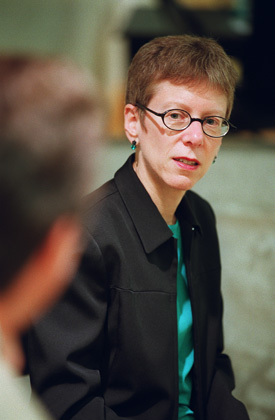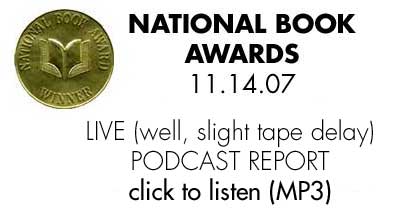Walter and Patty Melted were the young products of Franzen Hill — the first dreadful characters to spit out of the misanthropic novelist’s mind since the old heart of The Twenty-Seventh City had fallen on hard times two decades earlier. The Melteds hadn’t done anything to that bitter elitist hillock in Manhattan, except have the misfortune to run into it and kill themselves for ten years while the ultramontane deities renovated them. Early on, some very determined blogger torched the shit monster and did everything except beat this sad lifeless soil to a pulp so that he could drink Pabst Blue Ribbon with Howard Junker and cook up a few hot dogs with some of the boys at the raucous rooftop party that Jonathan, that sour whiny motherfucker with earplugs permanently stuck inside his hirsute ears, would never attend. “Hey, you guys, you know what?” Jonathan asked on behalf of the Melteds, “you are low-class people who will never understand my literary genius.” He saw Oprah — or was it Oona? — on a bigass tv set and wanted to destroy this pox upon pop culture that his dainty toes would never touch. The Melteds hung down their heads, wondering why they had to be attached to this utterly incurious novelist and outright wanker. Behind the Melteds you could see the glazed Galassi making book-encumbered demands of book-encumbered novelists who forgot just what lively writing was all about; ahead of him, an afternoon of George Michael on radio, Freedom, an important title for an important man who had sideswiped Gaddis, taking his title and then dissing his last two books while the great Bill G was safely packed away into his maggot feeding plot, and then “Goodnight Fuck,” then Zinfandel, not that low-class populist Pabst Blue Ribbon. The Melteds knew that Gawker reporters would be there. Jonathan knew that he was a gasbag that just couldn’t stop expanding over the itchy and queasy expanse of Franzen Hill.
In the earliest years, when you could still remember getting your fingers greasy without feeling self-conscious or ashamed of the remainder of those middling Missouri roots, the collective task at Franzen Hill was to relearn certain joys about life that everybody else seemed to experience, but that eluded the sourpuss gestalt, like how to find some moment to smile at over the course of a 72-hour period, and how to actually enjoy some sight without standing on the edge of Central Park with a stick up your ass, and how to understand that there was actually a universe that extended beyond the island of Manhattan, and how to not write needlessly long sentences with laundry list clauses and pretend that you had something significant to say. Did they print this silly shit because it shot from the soulless steam stacks atop Franzen Hill? Did they even check the manifest anymore? Who needed to? The piece — whether story or excerpt from forthcoming novel — would give phony comfort to New Yorker readers. Franzen Hill was a brand name. One as dependable as Nike, Pepsi-Cola, and Microsoft.
For all existential queries and verisimilitudinous volts, Patty Melted was a resource, a dried up construct whom Jonathan the novelist could desperately look to for the answers. A carrier of sociocultural pollen, if only the author had anything sociocultural to really draw from. She would have to remain a spent capsule, a sarcophagal bee that never talked back and stung the author, and only the author, when provoked.
Make no mistake: this was a disease, a cancer that would cause the unthinking literary acolytes to praise Franzen Hill’s physical dimensions without considering the pustules and sputum enervating the whole. Those flabby Bolanoites holed up in garrets still actually believed that they could bust shit up from the inside when they were part of the unthinking market forces. The rush of Franzen Hill would spread with the thwacks of magazines hitting doorsteps and newsstands, and continue with the reverberating dings from email clients. Endless forwarding, some printing off of the story for the subway, the sense that Franzen Hill was only the finest. Never mind what shit the story was. It appeared in The New Yorker!
The Melteds still knew that Everest towered over Franzen Hill.
“It’s a wonder,” Walter Melted remarked to Patty afterward, “that this sad and contemptuous man is even still writing.”
Patty shook her head. “I don’t think he’s figured out how to love anything.”

